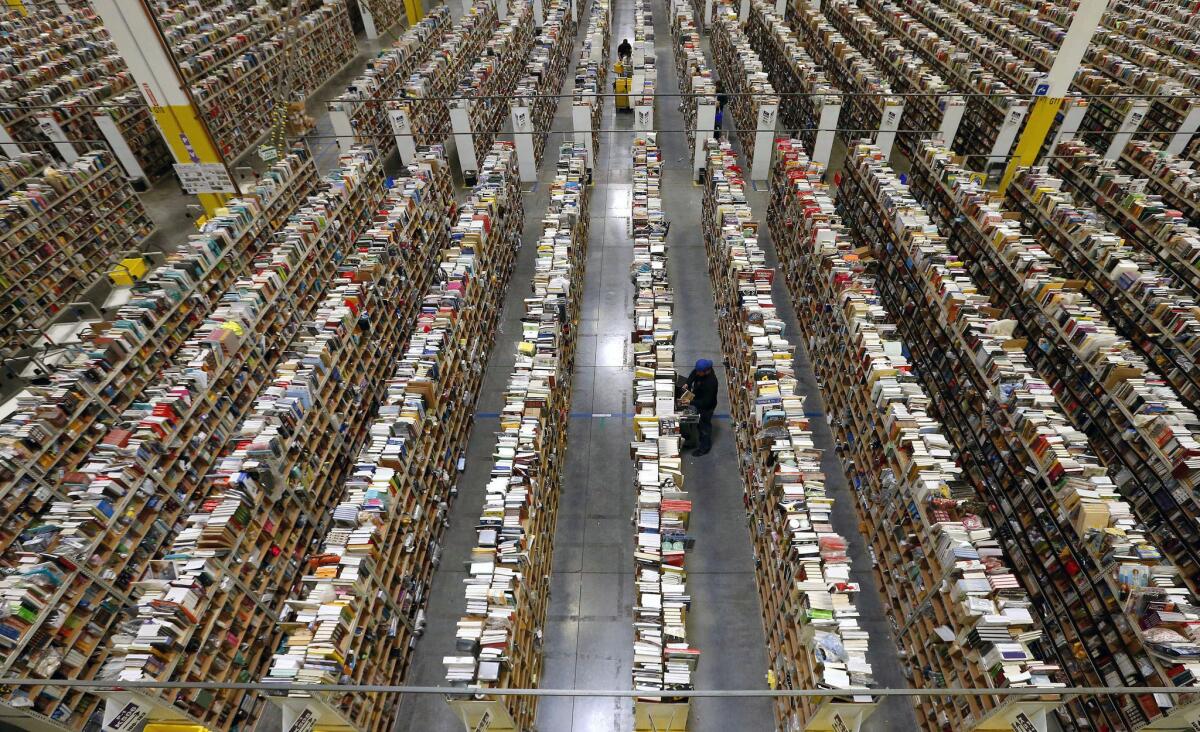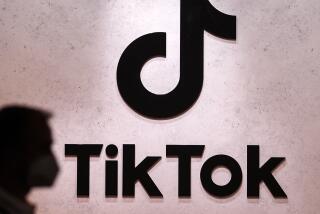Lawmakers ask Amazon, EBay to crack down on counterfeit sales

A bipartisan group of House lawmakers urged Amazon.com Inc. and EBay Inc. executives to take stronger actions against third-party vendors who sell fake, stolen or unsafe goods on their shopping websites.
“Organized retail crime, selling counterfeits and stolen products, poses a threat to consumers who are unwittingly purchasing these items,” said Representative Jan Schakowsky, an Illinois Democrat, during a hearing Wednesday before a House Energy and Commerce Committee subcommittee. “Online marketplaces need to place safety and accountability to consumers before profit,” Schakowsky said to a panel of consumer advocates and technology company executives.
Companies that complain their products are being unfairly counterfeited are up against digital marketplaces that say they work to combat fake merchandise, but have acknowledged that they don’t catch every listing. Jeff Myers, Apple Inc.’s senior director for intellectual property, said fraudulent sellers often use the iPhone-maker’s name, logo and designs to deceive customers and sell products with compromised performance and safety.
EBay associate general counsel Amber Leavitt and Dharmesh Mehta, Amazon’s vice president for customer trust and partner support, testified that their companies have invested in machine learning and other tools to identify fake listings and plan to continue to support law enforcement in their investigations of fraudulent sellers.
Amazon has been proactively scanning its website for vendors falsely claiming their products will cure the coronavirus, Mehta said. “There is no place for false claims or price gouging on Amazon,” he said.
Lawmakers, President Trump and internet companies are exploring new measures to curb the proliferation of fake goods from air bags to bicycles from being sold online. Republicans on the committee praised the Trump administration’s policies on counterfeit goods, while also raising alarms about the sheer volume of fake products flowing from China into the American marketplace.
“The administration should be commended for their leadership,” said Representative Cathy McMorris Rodgers, a Washington state Republican and subcommittee ranking member. “If we don’t step up, China will dictate the terms and rules for the future. The Chinese Communist Party will win with the playbook they’ve always used: by undermining human rights, stealing from our innovators, and cheating and harming Americans.”
The Department of Homeland Security in January released a list of recommendations for the federal government and tech companies to help stop pirated goods from being shipped from overseas to American consumers. The report followed an executive order signed by Trump last April that called for the department to draw up rules to combat counterfeit trafficking.
The department recommended that the Trump administration should seek permission to take legal action against third-party marketplaces that sell counterfeit merchandise, better track packages mailed from other countries and launch a consumer-awareness campaign, among other measures. The report also called on tech companies to more aggressively screen their vendors and create restrictions on products that are more likely to be counterfeited.
White House trade advisor Peter Navarro told Fox News last month that the U.S. has a “huge problem” with counterfeit items and contraband coming into the country from China, and Amazon “is a great enabler of counterfeiting.” Under the first phase of a broader trade pact signed by China and the U.S. in January, China said it would impose criminal penalties on anyone caught stealing commercial secrets and do more to stop the sale of pirated goods online.
On Monday, members of the House Judiciary Committee introduced a bipartisan bill that increases liability for companies that sell counterfeit goods that risk consumers’ health or safety. The bill from Representatives Jerrold Nadler and Doug Collins — the chairman and top Republican on the House Judiciary Committee, respectively — would impose liability on online sales platforms such as Amazon and EBay when third-party vendors on their sites sell dangerous counterfeit products.






